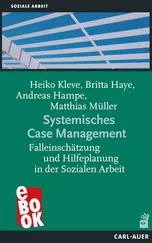But when she pulled into her driveway with Lewis, the man was in the yard, waiting.
Linda shook. Tears wet her cheeks, but she didn’t even realize she was crying. Lewis fussed against the new bad feeling he sensed.
Please leave, she choked. The man picked at his teeth.
She cradled her son’s head and stooped, picked up a rock from the worn area between the asphalt and the grass. She threw it at the man. It landed to his left. She threw another and it hit his shoulder but he didn’t move, just rubbed the spot with his other hand.
Don’t you have enough children already? she cried, then ran to the house and slammed the door behind her.
She drew all curtains, triple-locked all doors, yanked on the window bars to test their strength. What did it matter, though? He’s not going to break in. He’s going to walk right in when I make a mistake. It’ll be my fault, she thought as she settled Lewis into his crib. He looked up at her with moist eyes and shook his limbs in a baby fit. His mouth opened and closed whether he wanted it to or not; his tongue seemed at times too big for his wet mouth. She’d forgotten about all the things babies do, and how pleasing it is to watch them. She watched Lewis for days and nights. She didn’t sleep. She didn’t want to take any chances.
During one of his late-afternoon naps, she rocked in the rocking chair and watched Lewis moving in his sleep. It looked as if he was wrapping imaginary yarn around an imaginary spindle, making an imaginary bundle he would then stick into his mouth. She got lost in the involuntary turning of his arms. She imagined the two of them flying a kite, her tiny baby in a crib in the middle of a hay-yellow meadow, unraveling a spindle of string into the air as she helped it along, the kite lifting higher with each rotation. But a knot formed and she had to crawl up the string to untangle it. Just as the knot came free, she heard an iron gate creak and saw the man coming across the meadow for Lewis. She shimmied down the string and every inch she slid the man got an inch closer so that in an agonizing way they would each reach Lewis at the same time, and then what? She slid faster and the man walked faster. Then Lewis, with a laugh, let out more string on the spindle, and Linda rose higher, yelling for him to stop, but by then she was too high. The man kept inching forward, and she knew, because of her own foolishness, she was going to lose this baby too. Then she was above the clouds and could no longer see. But she felt the slack as Lewis was taken, imagined him dropping the string in fright as she was set adrift into the sky.
She woke slumped in the rocking chair, disoriented by the dimness of early evening. A reverberation, some disturbance, hung in the air. The alarm clock glowed a witchy green through the darkening room. Panicked, she turned on the light. A baby lay there. He looked like Lewis, but perhaps it was some trick and the man had swapped her child with another, a placeholder she could never love. She slipped Lewis out of his clothing and checked his body to be sure. A birthmark behind his left knee. And then, knowing that, when she looked into his cranky eyes she could see it was Lewis.
Throughout the house, she felt the man’s absence. He had been there. The front doorknob held on to just the briefest warmth from his grasp. Next time she would not wake up. She knew that. And the man would not leave the yard until he had Lewis.
Linda turned to the women in the neighborhood. They’d been so encouraging when she’d gotten pregnant again. But now her neighbors were not helpful.
If there were enough of us on the lookout, I’m sure he would leave us alone, Linda pleaded.
What are we supposed to do, patrol in front of your house all day and night?
All of us?
We have our own families to take care of!
They gathered in Helen’s living room for their monthly block association meeting; Helen was the president. But none had come expecting a new idea to be discussed. Now they looked rumpled, when a moment before they had been very put together.
But if we shared the burden, took turns, we could protect our children.
You mean, protect your child, Helen clarified in a presidential way, looking around for agreement. The women nodded at this highlighted unfairness.
He’s your responsibility, complained a woman whose name Linda always forgot. She lived in a red house. Linda had heard a rumor: The woman had given her first child to the man. She’d been too overwhelmed. Linda found it hard to believe.
But we’ve all had to go through this. Imagine if we worked together — we might never lose another.
Jill from the cul-de-sac touched Linda’s arm pityingly. You’re upset. It’s understandable. And you’re right: we have all been through this. So trust me when I say eventually he’ll stop taking them, and then you will have some to keep. This is how it works. I lost one. She pulled a picture from her wallet of her own smiling family: a husband, two boys, a girl. They were all school-age but wore clothes shapelessly. See?
Helen picked up a school portrait of a boy with a scared smile. For what it’s worth, he’s my oldest. But really he was number three, she said. It’s all in how you look at a thing. She stroked the picture with her manicured finger. Her voice faltered. I remember when he was so little.
Linda’s closest neighbor, Gail, picked a hair from Linda’s blouse tenderly. Everyone who wants a family manages to have that family, she said. It just takes some of us longer.
Linda felt numb. How can you just let them go and be done? She hadn’t meant for it to sound accusatory, but it must have, because she saw the women had stiffened.
Helen’s smile was tight. Let me demonstrate something. She pointed to the baby in Linda’s arms. What’s his name?
Linda squeezed, and he squirmed. Lewis.
And your first? The name? Helen demanded.
Linda hesitated. All she could think of was Lewis, his warmth, his breath. The name Lewis hung lonely in her brain, a place where a minute ago many thoughts had raced.
Helen looked around the circle. I believe I’ve made my point, she said, and the women nodded. They weren’t the ones who needed convincing.
She knelt in front of Linda. When they’re gone, they’re gone. Have another — start trying now — and hope for the best. She pinched Lewis’s cheek roughly and sighed. Meeting adjourned.
Everyone looked drained. They’d never dealt with someone like Linda before.
Linda walked down the road. It was only half a block to her home with the family-friendly paint, so many locks, the man in the yard. She kept thinking, Lewis, Lewis, Lewis. Then a small yellow bird swooped by her on its way from one streetlamp perch to another, and she remembered: Beatrice.
Why don’t you ever stay up to watch over Lewis? she asked her husband. She no longer slept. Their relationship was strained.
I support our family by going to work. If I don’t sleep, then I don’t work, and we don’t eat, he replied.
She wiped the counter again. If we don’t have a child, we don’t have a family.
He laughed. That’s not true at all. You’d be here. My job is to support you. If you go away, I have no one to support. But if Lewis goes away, well, then I have you to support, and then we make another one, and then I support the both of you. That’s what a family is. He said it as if he thought she was dumb.
And what if that one gets taken? Her voice cracked.
He realized she wasn’t just being contrary but was actually upset. He pulled her close. Shh, shh, he consoled. Don’t worry, he rarely takes a third. I can count the number of threes on one hand.
She stiffened. A third? You’re not even pretending there’s hope for Lewis.
Читать дальше












